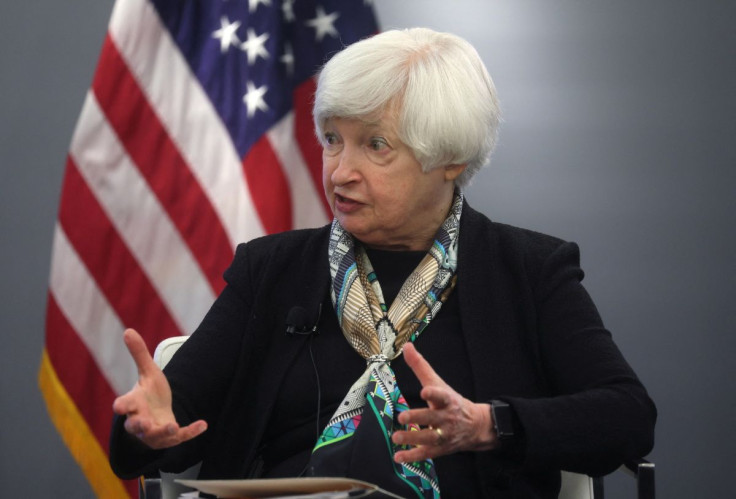Yellen Says G7 To Give Ukraine Funds It Needs 'To Get Through This'

U.S. Treasury Secretary Janet Yellen said the G7 finance leaders on Thursday agreed to provide Ukraine the financial resources it needs in its struggle against Russia's invasion, and that policymakers are determined to meet their inflation targets.
Yellen, speaking to reporters after the first day of a G7 finance ministers and central bank governors' meeting here, declined to confirm an $18.4 billion figure pledged in the group's draft communique seen by Reuters.
The meeting wraps up on Friday.
Yellen said that funding pledges to Ukraine during the meeting exceeded the $15 billion that Kiev has estimated it needs over the next three months to make up for lost revenues as the war devastates its economy.
A $40 billion U.S. aid package under expected to be approved by the U.S. Senate this week would include $7.5 billion in new economic aid, while the European Commission pledged 9 billion euros for Ukraine, Yellen said. Other countries, including Canada and Germany, pledged additional amounts.
"The message was, 'We stand behind Ukraine. We're going to pull together with the resources that they need to get through this,'" Yellen said.
She said that high global inflation was a significant topic, but none of the policymakers had said they were considering raising their targeted inflation rates.
"What was discussed was the critical importance of central banks taking the actions that are needed to show they are committed to the inflation targets that they've set," Yellen said.
Yellen said the officials felt that economic conditions had not changed " so fundamentally, that it would be worth dislodging what we felt it become a stable anchored set of inflation expectations."
She said that she still believed that the U.S. Federal Reserve could achieve a "soft landing" of the economy without causing a recession, but how Fed officials achieve this is up to them though it "requires both skill and luck."
Discussions about mechanisms to reduce Russia's revenues from oil exports to Europe were limited on Thursday, Yellen said, adding that there is a lot of interest in the concept.
U.S. officials have floated the idea of imposing tariffs on Russian oil to limit the amount of revenue that Moscow can collect while keeping Russian crude supplies on the market as EU officials pursue a phased embargo by year end.
Yellen said that a buyers' cartel that would not buy oil above certain prices could be successful if it is large enough.
"Nothing is really crystallized as an obvious strategy," she added.
© Copyright Thomson Reuters {{Year}}. All rights reserved.





















